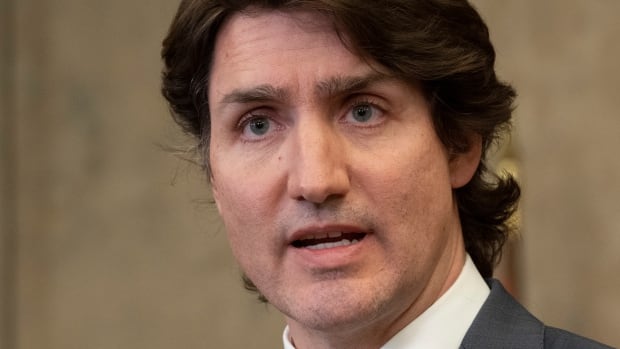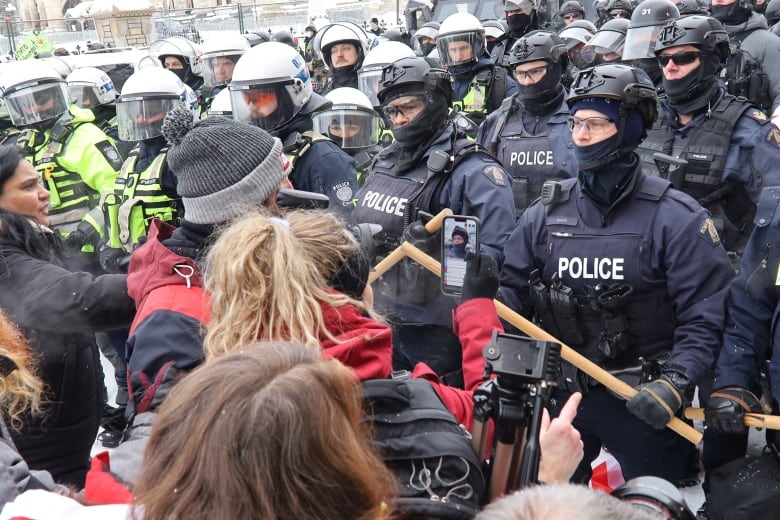
Six weeks of dramatic witness testimony will come to a close today when Prime Minister Justin Trudeau appears before the Emergencies Act inquiry to defend his government’s decision to invoke the law for the first time in its 34-year history.
Trudeau’s highly anticipated appearance before the Public Order Emergency Commission wraps up the public hearing phase of the commission’s work. The commission is investigating the government’s decision to declare an emergency on Feb. 14 to clear anti-public health measure protests in Ottawa and deter border blockades.
The inquiry has heard testimony from dozens of witnesses, including Ottawa residents, local officials, police, protesters and senior federal ministers.
The inquiry has heard conflicting views from police and intelligence agency leaders about whether the Emergencies Act powers were needed.
The night before the law was invoked, RCMP Commissioner Brenda Lucki told Public Safety Minister Marco Mendicino that she felt police had not yet exhausted “all available tools,” according to an email seen by the inquiry.
But documents submitted into evidence on Thursday indicate that the RCMP wanted to keep the Emergencies Act in place for weeks after the protests were cleared.
Canadian Security Intelligence Service (CSIS) Director David Vigneault told the inquiry he supported invoking the Emergencies Act because “the regular tools were just not enough to address the situation.” He previously told the Public Order Emergency Commission he didn’t believe the convoy constituted a “threat to national security” according to the definition in CSIS’s enabling law.

Jody Thomas, the prime minister’s security and intelligence adviser, told the inquiry she recommended invoking the act.
Thomas also undermined Lucki’s claim that on the eve of the federal government invoking the Emergencies Act, she told Mendicino’s chief of staff that she felt police had not exhausted all legal tools.
Thomas told the inquiry Lucki failed to pass that information on during a meeting with senior officials on Feb. 13.
But a key piece of evidence may not see the light of day. During his testimony, Justice Minister David Lametti wouldn’t explain the legal opinion the government received when invoking the act, citing solicitor-client privilege.
Gordon Cameron, one of the lawyers for the commission itself, accused the government of demonstrating a lack of transparency close to the end of Lametti’s testimony.
Government worried about economic impacts
Deputy Prime Minister and Finance Minister Chrystia Freeland defended the government’s decision Thursday, arguing that the protests sparked political concerns south of the border.
At various points in early 2022, protesters blockaded border crossings in Windsor, Ont., the small town of Coutts, Alta., Emerson, Man., and the Pacific Highway in Surrey, B.C.
Earlier this month, the inquiry heard that Transport Canada estimates as much as $3.9 billion in trade activity was halted because of border blockades related to the convoy protests.
As a result, Freeland said, she heard complaints from the highest levels of the White House. She called it a “dangerous moment for Canada.”
Still, a number of groups — including the convoy protest organizers and the Canadian Civil Liberties Association (CCLA) — have argued that invoking the act amounted to government overreach.
“With just one day of testimony left, the government is running out of time to prove it met the high burden of invoking the Emergencies Act,” the CCLA said in a statement on Thursday.
Friday’s hearings will be capped by closing arguments as lawyers make their final arguments to Commissioner Paul Rouleau.
The commission is winding down its public hearings but will still hear opinions from academics and experts next week. Rouleau’s final report is due to be tabled in Parliament in February.